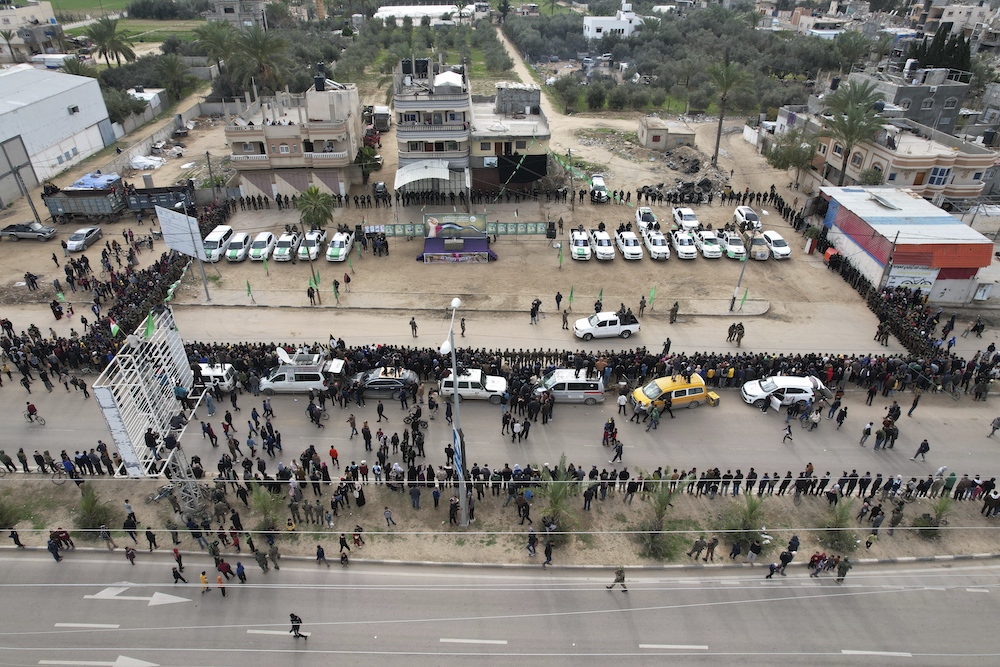BEIRUT: Kurdish fighters in northern Syria are increasingly under pressure from Turkish-backed armed groups while also fearing the new authorities in Damascus will upend their hard-won autonomy.
Suppressed for decades, the Kurds took advantage of the weakness of Bashar Assad’s government during the civil war, but with the rise of the new authority following his ouster, they are left navigating a complex and uncertain future.
As Islamist-led militants pressed their lightning 12-day offensive that toppled Assad on December 8, Turkish-backed fighters began a parallel operation against Kurdish-led forces in the north.
They quickly seized Tal Rifaat and Manbij, two key Kurdish-held areas in a 30-kilometer (17-mile) stretch along the Turkish border where Ankara wants to establish a so-called “security zone.”
Following a wave of fighting, a US-brokered truce took hold on December 11, although Kurdish forces say it has not been respected by Turkish forces in the area nor their proxies.
Kurdish fighters make up the bulk of the US-backed Syrian Democratic Forces (SDF) which was formed in 2015 and is seen as the Kurds’ de facto army.
The SDF spearheaded the fight that defeated Daesh group militants in Syria in 2019 and is still seen by the US as a “crucial” to prevent a militant resurgence in the area.
They have warned about a possible Turkish assault on the Kurdish-held border town of Kobani, also known as Ain Al-Arab, which has become a symbol of the fight against IS.
On Tuesday, SDF leader Mazloum Abdi proposed setting up a “demilitarized zone” in Kobani under US supervision.
There are also US troops in Syria as part of an international coalition against the militants, whose numbers doubled earlier this year to around 2,000, the Pentagon said Thursday.
As well as relying on pro-Turkish fighters, Ankara has between 16,000 to 18,000 troops in northern Syria, Turkish officials say, indicating they are ready for deployment “east of the Euphrates” if Kurdish fighters don’t disarm.
But Turkiye’s top diplomat Hakan Fidan on Wednesday said there would be no need for Ankara to intervene if the new government was to “address this issue properly.”
Observers say Ankara wants to take advantage of the Syrian upheaval to push Kurdish forces away from the border zone, seeing them as “terrorists” over their ties with the PKK which has fought a decades-long insurgency on Turkish soil.
Since 2016, the Turkish military has launched several operations in northern Syria targeting the YPG (the People’s Protection Units), which makes up the bulk of the SDF.
Turkish troops have remained in a large stretch of land on the Syrian side of the border.
Syria’s Kurds have made several gestures of openness toward the new authorities in Damascus, fearing for the future of their autonomous region.
They have adopted three-starred independence flag used by the opposition that is now flying over Damascus, and said Wednesday they were canceling customs and other taxes on goods moving between their area and the rest of Syria.
HTS’ military chief Murhaf Abu Qasra, whose nom de guerre is Abu Hassan Al-Hamawi, said Tuesday Kurdish-held areas would be integrated under the new leadership because Syria “will not be divided.”
“The region currently controlled by the SDF will be integrated into the new administration of the country,” he said.
Kurdish fighters in Syria face dual threats
https://arab.news/9qxvw
Kurdish fighters in Syria face dual threats

- Suppressed for decades, the Kurds took advantage of the weakness of Bashar Assad’s government during the civil war
- But with the rise of the new authority following his ouster, they are left navigating a complex and uncertain future
























